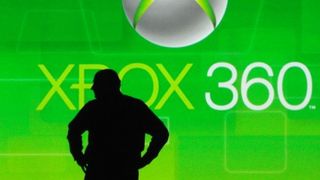Big, brash and bullish: how Ballmer's personality kept him at Microsoft's helm
Ballmer leaves Microsoft in better shape than when he joined it
Whether successful or not, those multiple platforms meant Microsoft was reinventing the wheel again and again - and ignoring the lesson of Windows NT. When Microsoft merged the kernel behind its server and desktop operating systems, it was able to develop key systems like network and file systems once and use them in two or three places.
That's a great way to take advantage of the scale of different markets. Putting the same kernel inside Windows and Windows Server and Azure and Windows Phone and Xbox One lets Microsoft build difficult things once instead of five times. It's the same principle as the One Microsoft reorg Ballmer announced recently: do things together when it makes sense instead of doing the same thing in multiple teams.
Failing too slowly
"Microsoft spent years investing in a hugely ambitious new operating system that it never delivered, changing course halfway through and throwing away years of work to deliver something much less visionary"
In interviews after he announced his plan to leave, Ballmer called the "loopedy-loo" around Longhorn his biggest regret. Microsoft spent years investing in a hugely ambitious new operating system that it never delivered, changing course halfway through and throwing away years of work to deliver something much less visionary that only ran well on brand new PCs, with a compromised version for cheaper hardware.
The Vista Basic disappointment, and subsequent lawsuit, was something Ballmer was responsible for only in that he trusted the leaders of the Windows team (put in place by Bill Gates) to make the right decision; when questions were raised and Ballmer asked if they should rethink the plan, those leaders said no - and like a good leader, Ballmer backed them.
When the decision proved wrong, he put Steven Sinofsky in place to fix things. That gave us Windows 7, one of Microsoft's most successful products ever.
Internet Explorer languishing on version 6 for so many years? Another decision made by the same Windows leaders that Bill Gates put in charge. Again, Ballmer's mistake was not overriding them sooner.
Are you a pro? Subscribe to our newsletter
Sign up to the TechRadar Pro newsletter to get all the top news, opinion, features and guidance your business needs to succeed!
Similarly, when Photon, the Windows Mobile 7 project, dragged on for years without shipping, Ballmer put Terry Myerson - who had shipped two major versions of Exchange complete with mobile email and negotiated a deal with Apple to get support for that in iPhone - in charge of Microsoft's mobile strategy.
The mistake there was not killing the Kin project at the same time. Probably for political reasons, first J Allard then Andy Lees were allowed to continue building a phone the carriers had no intention of selling - diverting resources that could have gone to Windows Phone.
And while Windows Phone has certainly struggled against Apple and Google's dominance in phones, it might be starting to turn the corner, at least in the emerging markets where the next big smartphone sales are coming from.
Patience unrewarded
Of course, if Microsoft had seen Android and iPhone coming, they wouldn't have had to claw back a phone market they used to have a major share in. But then neither BlackBerry nor Palm were able to hold off Apple's major investment in mobile and Google's willingness to just give its operating system away.
Certainly, Ballmer - or Microsoft generally - was complacent. He famously dismissed iPhone as not being good at email. But it didn't matter that iPhone wasn't good at email, or even at phone calls in many cases: it was good at being a pocket entertainment system that captured the consumer imagination. As so many times, Microsoft couldn't put the pieces of its many resources in email, entertainment and mobility together to compete.

Ballmer was prepared to back Bing and the other online services for as long as it took to find a niche, and after years of losses, the online services division has started to turn the corner. Buying aQuantive to chase Google's ad search market might have been a good idea if Microsoft had been able to do anything with it. As it was, it turned into a $6 billion writedown (which Ballmer survived, making it hard to see the board firing him for a mere $900 million writedown on Surface).
Mary (Twitter, Google+, website) started her career at Future Publishing, saw the AOL meltdown first hand the first time around when she ran the AOL UK computing channel, and she's been a freelance tech writer for over a decade. She's used every version of Windows and Office released, and every smartphone too, but she's still looking for the perfect tablet. Yes, she really does have USB earrings.
